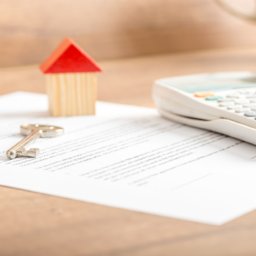10 Things You Need to Know About Your Real Estate Appraisal
Real estate appraisals are essential for both selling your home or refinancing and are the best, impartial way to get a fair estimate of the market value.
By understanding the process involved, you’ll be able to mitigate some of the major issues people sometimes face and even possibly increase the value before the appraisal happens.
Read on to find out some essential information about the process.
1. The Difference Between an Inspection and a Real Estate Appraisal
Appraisals take in general information about your home such as its size, the lot of land and number of bedrooms. This is then compared to other similar homes in the area and their listed worth to ascertain the market value of yours.
This is carried out by a trained professional who will be licensed to perform the appraisal and fully capable of giving your home a fair value.
A home inspection, on the other hand, is usually performed for someone interested in buying a home. This process is significantly more in-depth as they are looking find things that could be wrong with the house from broken sockets to issues with the roof.
2. Who Pays?
It is very common for the homeowner to pay for the appraisal itself.
The process is heavily regulated and lenders will not give you a loan without one. Because they are the ones giving you money, they are usually the ones to fund an appraiser they trust and will include the cost of this in your fees.
Depending on where you live, the costs can vary. In some areas, it is around $400 but this can go up as high as $1400 if you’re in an expensive area or are in a multi-family property.
Sometimes these costs are upfront so be sure to have money set aside in case you find yourself in this situation.
3. Before the Appraisal
Does your home have any additions or extra spaces built into it? Regardless of whether it was there before you moved in or you added it yourself, it’s essential to know if the work done was legally permitted.
A good way to check this is to head to your county or city property tax office which taxes you based on its record of your home. If you look at the plans they have on file and find that an extension or something else is missing, then it’s possible it happened without going through the proper channels.
This can cause the evaluation of your home to change. If you find yourself in this situation it’s important to attain legal paperwork allowing it post-construction.
4. Important Necessities
There are a number of key factors that every appraisal covers:
- Land – this is the entire plot of land your home sits on. If you have a large front and backyard, this will help increase your home’s value when compared to a smaller plot
- Number of Bedrooms – just because a room has the potential to be a bedroom will not make it so. In fact, the room is legally required to have at least one window and closet to qualify as a legitimate bedroom.
- Livability – There’s a difference between a “fixer-upper” and a house which is completely dilapidated. Appraisers will look for signs of issues such as old lead pipes, peeling paint, as well as checking your heating and cooling systems.
You should also be aware that a basement is not part of your home’s square footage. However, a renovated basement can certainly still add to the final value.
5. Look at Homes in Your Neighborhood
As mentioned above, the value of your home is always in relation to other similar homes in your area.
For example, assume you have a three bedroom house with two bathrooms and a small front yard. If there are many similar properties in the surrounding area and your home is not as well kept up in comparison, it will have less value.
Conversely, if your home is nicer and has more to offer, it is often seen as a better option by potential buyers or at least help give you a larger loan.
6. Add Value With Permanent Additions
A permanent addition is anything that cannot be taken with you once the home is sold.
So if you wish to improve your home’s value, having new appliances built into it will certainly do this. As mentioned, a renovated basement that can double as a living space will count as an upgrade too.
If you are planning any changes to your home, it’s essential you have the finished before the appraisal happens. This will ensure you get the maximum value out of your home before refinancing or selling it on.
7. Don’t Overdo It
Again, an appraisal determines value by comparing your home to others in the area.
So it is strongly advised you don’t build beyond the other homes in the area because it makes it difficult to assess the real value. A spruced up three-bedroom home will definitely fetch a higher price than others in the area.
But imagine you add an extension that significantly increases the number of bedrooms and bathrooms beyond other homes. In this case, an appraiser will have to give your home a rough estimate which could work against you and be a lower value than your home deserves.
8. Looks Count
While appraisers are just looking for the basic information on your home, it would be unwise to assume that the presentation doesn’t matter.
Just like any other regular person, if they visit and your home is dirty and unkempt, it will naturally affect their personal opinion about the overall value compared to a nicer home they saw elsewhere.
To give yourself the best chance, it’s a great idea to make your home look as presentable and inviting as possible before the appraisal date.
Sometimes all it takes is clear surfaces and floors but adding a fresh coat of paint can also do wonders for the aesthetic of a room as well.
9. You Can Contest the Appraisal
Don’t worry if you feel your home was undervalued.
An appraisal is just the first step and you are well within your rights to argue for an increase. To do so, you need to make sure you have clear reasons and proof that the appraiser missed important details such as new paint or features of the home that weren’t considered.
10. The Value is Not the Final Price
Regardless of what the home is valued at by the appraiser, you can still try to sell the home at a higher value.
The appraisal is necessary for lenders to know and ensure people don’t try to sell their home unfairly above the real value. Beyond that, negotiations and high demand for housing can easily drive the price up in future should you want to sell it.
Do What You Can
With real estate appraisals, Knowing what to expect ensures you can do everything possible to help get yourself the best value.
It also gives you a good reason to clean and fix up your home making it even more enjoyable to live in.
Check out our other articles for more tips or get in contact if you’re interesting in our services.











